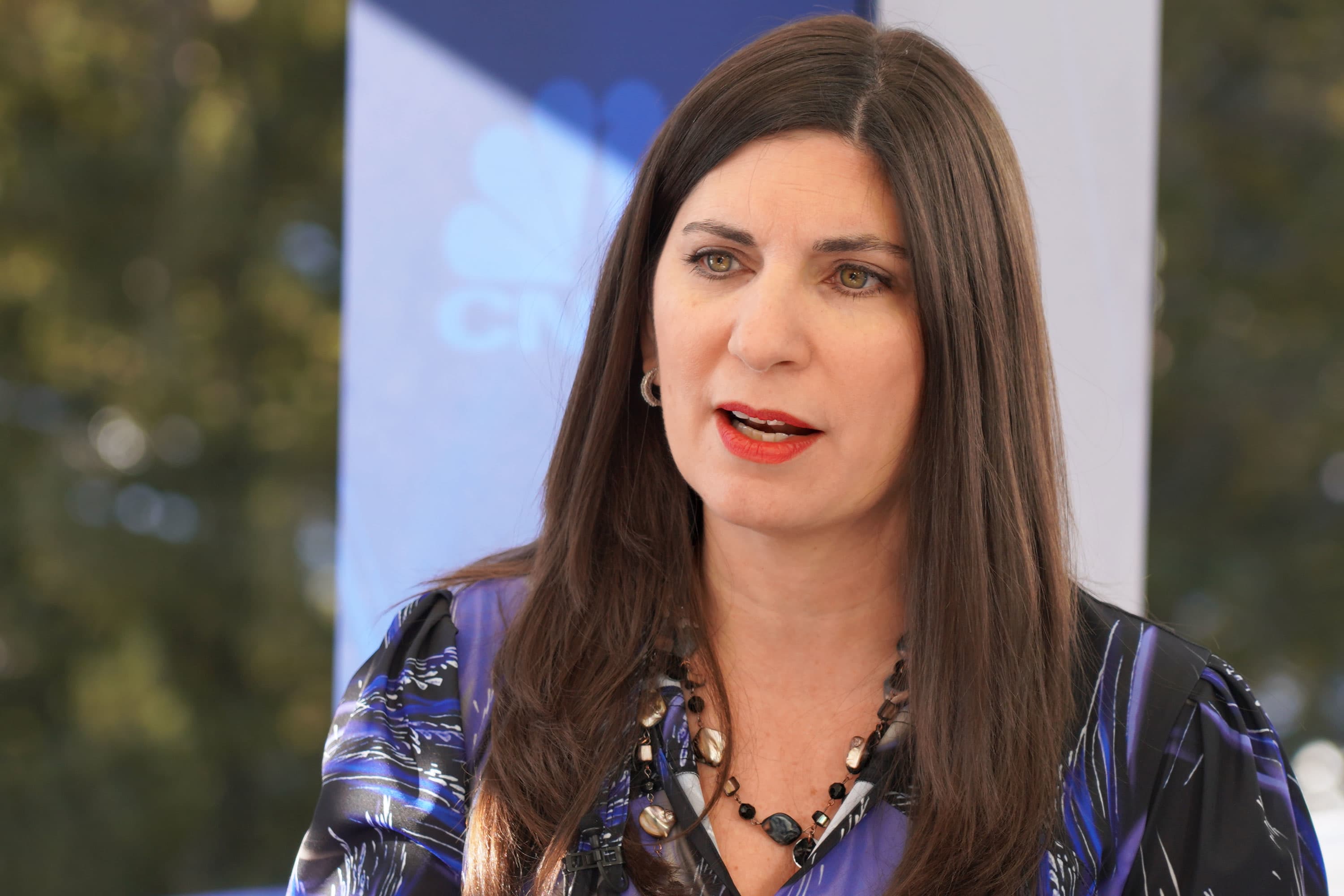
Stacey Cunningham, president of the New York Stock Exchange, speaking at the World Economic Forum in Davos, Switzerland, Jan. 23, 2020.
Adam Galasia | CNBC
The New York Stock Exchange (NYSE) is still seeing demand from Chinese companies looking to list in the U.S. despite highly publicized regulatory concerns, its president has told CNBC.
Relations between Washington and Beijing have become increasingly fractious in recent years, with President Donald Trump’s administration pushing to reduce domestic financial ties with the world’s second-largest economy.
Speaking to CNBC’s Karen Tso on Tuesday night, NYSE President Stacey Cunningham said the exchange was continuing to see demand from Chinese companies for U.S. stock market listings.
“What is really important is that we make sure we are appropriately setting a framework in place that keeps investors protected,” Cunningham said.
“We continue to see investor demand for Chinese companies in the U.S. and we haven’t seen that changing yet, despite the fact that there is a lot of talk about trade and about oversight, so we are working constructively and we are optimistic that we will be able to find a way to actually enhance the level of protections that exist on companies here in the U.S.”
Half of cross-border initial public offerings in the U.S. in the first nine months of the year came from China, according to Ernst & Young, despite the Senate in May passing a bill that could delist a number of Chinese companies from American exchanges.
Ant Group and the regulation question
Regulatory concerns around Chinese listings returned to the public eye last week after the last-minute suspension of Ant Group’s world-record $34.5 billion IPO in Hong Kong and Shanghai.
The Shanghai Stock Exchange said Ant Group had reported “significant issues such as the changes in financial technology regulatory environment,” according to a CNBC translation of the statement from Mandarin.
Without commenting on this individual case, Cunningham said there was “a lot of dialogue around how Chinese companies list here in the U.S., as well as what Shanghai and Hong Kong are doing.”
Cunningham emphasized the importance of retaining the depth and liquidity offered by the U.S. market by balancing investor protections, such as audit oversight, with access, and “not encouraging other companies to go to other global markets.”




